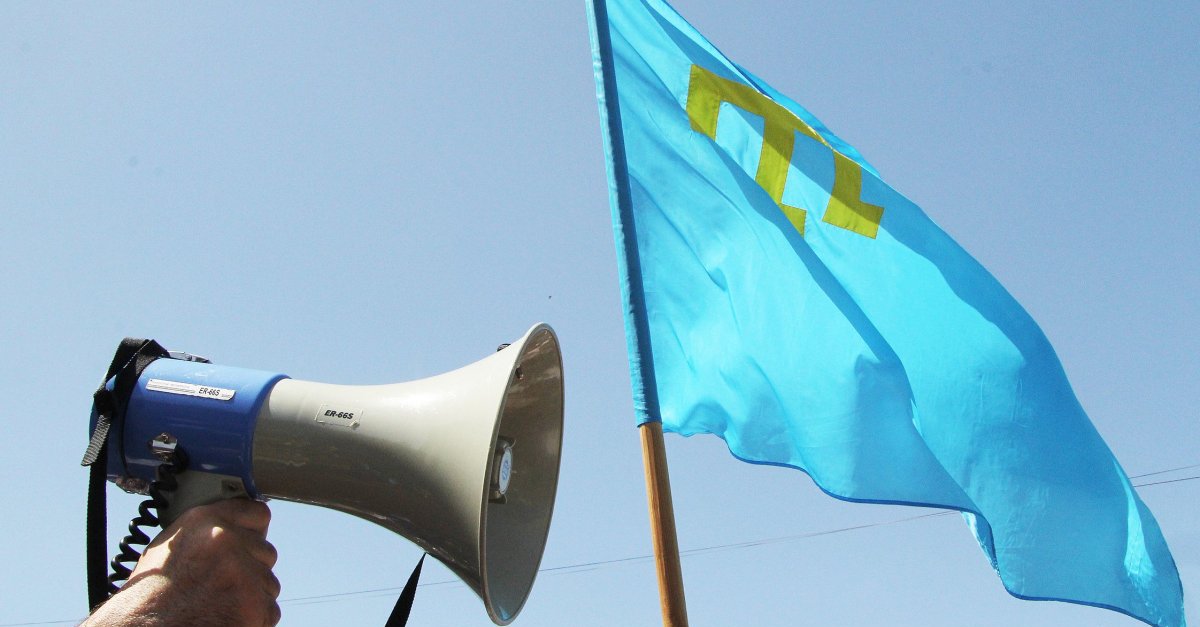
As a Crimean 'referendum' threatens dismemberment of Ukraine, American ideals of 'Strength through Diversity' and 'E pluribus unum' have gone unmentioned in the media - even though, unlike in the Russian Federation, all minorities in Ukraine continue to openly enjoy legal rights and official encouragement in all their activities. The newly-baked claims of some Russians in Crimea about "persecution" of minorities have not been borne out. Here are the facts about all minorities and their status in Ukraine, especially Russians and Crimea.
But first, a question:
1. What if each and every new wave of immigrants to United States had actually separated because of a "special relationship with their home country"?
Diversity is an integral part of the American experiment. Since its founding, the United States has been blessed with numerous waves of immigrants from every ethnic and religious group, making countless important contributions to every facet of American life - in science and technology, politics, the arts and culture.
But even more important than a question of territory and borders, where would American life be today, if every immigrant group had done what Crimean Russians want to accomplish by joining Russia?
2. Legal status of minorities in Ukraine
The Ukrainian Constitution and all laws are absolutely clear. Article no. 10 singles out Russian, along with all other minority languages, for protection and development. Article no. 53 guarantees all national minorities to have the right to receive instruction in their native language. Articles no. 21 through 68 enumerate comprehensive Human and Civil Rights for every citizen.
Throughout all the most recent proposed and actual changes in 'language laws', the Russian language and every other minority language continue to be protected and encouraged. From the first days of Ukrainian statehood in 1991, the Russian language was never 'forbidden' or 'banned'….Nowhere….Never.
3. Today's minorities in Ukraine
Russians (8,334,000) - Despite ethnic Russians comprising only 30% of the population in Ukraine, by far the vast preponderance of newspapers, books, magazines, TV programs is in Russian. Currently there are over 1,700 Russian schools throughout Ukraine, including many in the western half of the country.
Jews (104,000 ) - Rabbi Jacob Dov Bleich, president of the Jewish Federation of Ukraine and its chief rabbi stated on 3/3/2014 that Ukrainian Jews insist on Russian troop pullout and an independent Kyiv. Rabbi Michael Kapustin said he would light candles in his synagogue in Simferopol, but that if Russians make Crimea a part of Russia, "I will leave this country since I want to live in an independent Ukraine."
Belarusians (276,000) There are now Belarusian communities and organizations in major cities like Lviv, Sevastopol and others. Belarus President Lukashenka has called current events a tragedy, and supports Ukraine's sovereignty and territorial integrity.
Crimean Tatars (248,000) - Stalin forcibly deported all 194,000 tatars from Crimea in 1944. Crimean Tatar Majlis leaders have strongly condemned the 2014 Russian invasion and support the Kyiv government and Ukraine's territorial integrity.
Bulgarians (205,000) - After the dissolution of the Soviet Union a movement of national revival began. Bulgarian schools were started, Bulgarian newspapers and cultural organizations flourished. The Association of Bulgarians in Ukraine was founded in 1993.
Hungarians (157,000) - The first Hungarian university in Ukraine is in Berehovo. Most Ukrainian cities and towns bordering Hungary have a Hungarian majority and are free to conduct education at all levels in their mother tongue. They display street signs in Hungarian and all conversation in stores and shops is in Hungarian. Because of their interest in their compatriots across the border, Hungary was the first country to recognize Ukrainian statehood in 1991.
Polish (144,000) - The most beloved pastor of the Ukrainian Uniate Catholic Church was Metropolitan Andrey Sheptytsky, a man who came from aristocratic Polish lineage. Metropolitan Sheptytsky hid many Jews from the Nazis and helped them escape to the West. Poles voted overwhelmingly against Yanukovych in 2004.
Romanians (151,000) - In 1997, Ukraine and Romania signed a bilateral treaty assuring the rights of their countrymen in each other's nation. In Ukraine there are schools teaching Romanian as a primary language, along with newspapers, TV, and radio broadcasting in Romanian.
Germans (33,000) - In 1990, Germans numbered 200,000 in Ukraine's northwest region of Volhynia and were scattered over 1400 villages. Many emigrated to North and South America and some to eastern Siberia. Today they often have Russian and Ukrainian names and have started to revive cultural groups and festivals.
There are also sizable populations of Moldovans, Georgians and Armenians in Ukraine, all of whom enjoy the same rights and governmental protections as other minorities.
4. Historical contributions of minorities in Ukraine
Mykola Amosov, the renowned Ukrainian heart surgeon, was born to Russian peasants, fought in WWII and then moved to Kyiv. He was voted #2 on the list of "100 Greatest Ukrainians" by the nation. Amosov wrote: "Any union with Russia will sound our death knell. We need to engage on a global level. We need the knowledge to develop Western, not Russian technology. I am a Russian to the very marrow of my bones, but I'm telling you: nothing good awaits Ukraine if it joins with Russia".
Because Imperial Russia only allowed Jews to settle in certain areas, many Jews established roots in western and southern Ukraine. An astounding flowering of Russian musicians took root in Ukraine in the early part of the 20th century: violinists Jascha Heifetz, Mischa Elman, Nathan Milstein, Isaac Stern, David Oistrakh, conductor Jascha Horenstein to mention just a few. Authors like Sholom Aleichem, Mikhail Bulgakov, Isaac Babel… the poet Anna Akhmatova.… and many other notable non-Ukrainians were born and worked freely in Ukraine.
5. Specifically about Crimea and calls for Referendum
Russia has illegally invaded the territory of Ukraine. Hiding behind a smokescreen of pretexts, the Russian army has now occupied and controls all of Crimea. Reporters and correspondents have been beaten, and representatives from Amnesty International and other global human rights watch groups have been turned back and forced to leave the country. A 'referendum' date is being hurriedly pushed forward under the foreign occupying army.
Crimea already enjoys an almost unanimity of Russian language, culture, religion, media, and TV, despite that 40% of Crimeans are non-Russian. Yet still, the pretext for a 'referendum' and union with Russia is a fear of "persecution by Ukraine".
European and Western ideals are law and order, diversity and tolerance. Ukraine's minorities are legally protected and encouraged by their government. All minorities, especially Russians, are thriving undisturbed in Ukraine...
Not so long ago, the world witnessed the results of one nation's Aryan quest for uniform homogeniety. The Russian Empire tried for centuries to prohibit Jews from settling in parts of its territory. What will happen after an illegal and fraudulent 'referendum' in today's Crimea begins the elimination of the present diversity? Will Russia start ethnic cleansing? Will the West welcome the result?
By Adrian Bryttan, New York 3/9/2014






